Resources for Unit 5. Our Customs and Traditions – Global Success 8
| Site: | vinhphuc.topgrade.edu.vn |
| Course: | Tiếng Anh Tăng Cường lớp 8 - Phúc Yên |
| Book: | Resources for Unit 5. Our Customs and Traditions – Global Success 8 |
| Printed by: | Guest user |
| Date: | Sunday, 24 November 2024, 1:47 AM |
Description
Resources
for Unit 5. Our Customs and Traditions – Global Success 8.
Table of contents
- 1. Vocabulary for Unit 5. Our Customs and Traditions
- 2. Grammar for Unit 5. Our Customs and Traditions
- 3. Video Lecture for Unit 5. Our Customs and Traditions
- 3.1. Video Lecture for Lesson 1. GETTING STARTED
- 3.2. Video Lecture for Lesson 2. A CLOSER LOOK 1
- 3.3. Video Lecture for Lesson 3. A CLOSER LOOK 2
- 3.4. Video Lecture for Lesson 4. COMMUNICATION
- 3.5. Video Lecture for Lesson 5. SKILLS 1
- 3.6. Video Lecture for Lesson 6. SKILLS 2
- 3.7. Video Lecture for Lesson 7. LOOKING BACK & PROJECT
- 4. Hướng dẫn phát âm Unit 5 (Global Success 8)
1. Vocabulary for Unit 5. Our Customs and Traditions
Vocabulary
for Unit 5. Our Customs and Traditions.
1.1. Vocabulary for Lesson 1. GETTING STARTED
acrobatics
/ˌækrəˈbætɪks/ (n) xiếc, các động tác nhào lộnThe performers are excellent at acrobatics.
(Những người biểu diễn nhào lộn rất xuất sắc.)

admire
/ədˈmaɪə(r)/ (v) khâm phục, ngưỡng mộTom likes to admire the view from the hill.
(Tom thích ngắm cảnh từ ngọn đồi.)

bad spirits
/bæd ˈspɪr·ɪts/ (np) điều xấu xa, tà maIn many cultures, knocking on wood is a way to chase away bad spirits.
(Trong nhiều nền văn hóa, gõ vào gỗ là một cách để xua đuổi tà ma.)
bamboo pole
/bæmˈbuː pəʊl/ (np) cây nêuIt’s actually a bamboo pole.
(Nó thực sự là một cây sào tre.)
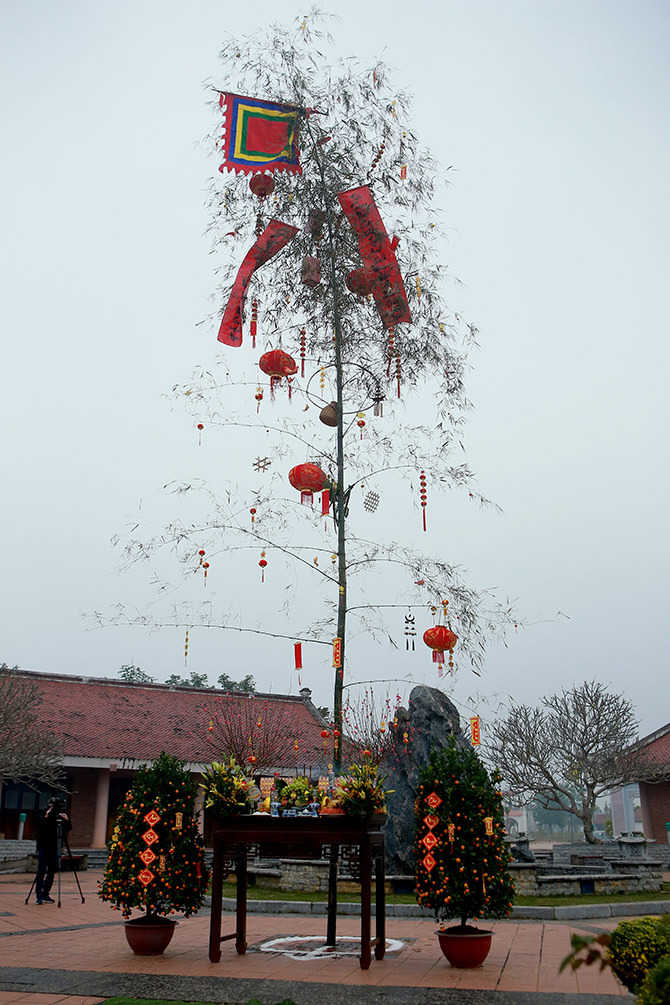
carp
/kɑːp/ (n) con cá chépThe offerings inculde a set of flowers and fruits, paper cothes and three carps.
(Lễ vật gồm có một bộ hoa quả, khăn giấy và ba con cá chép.)
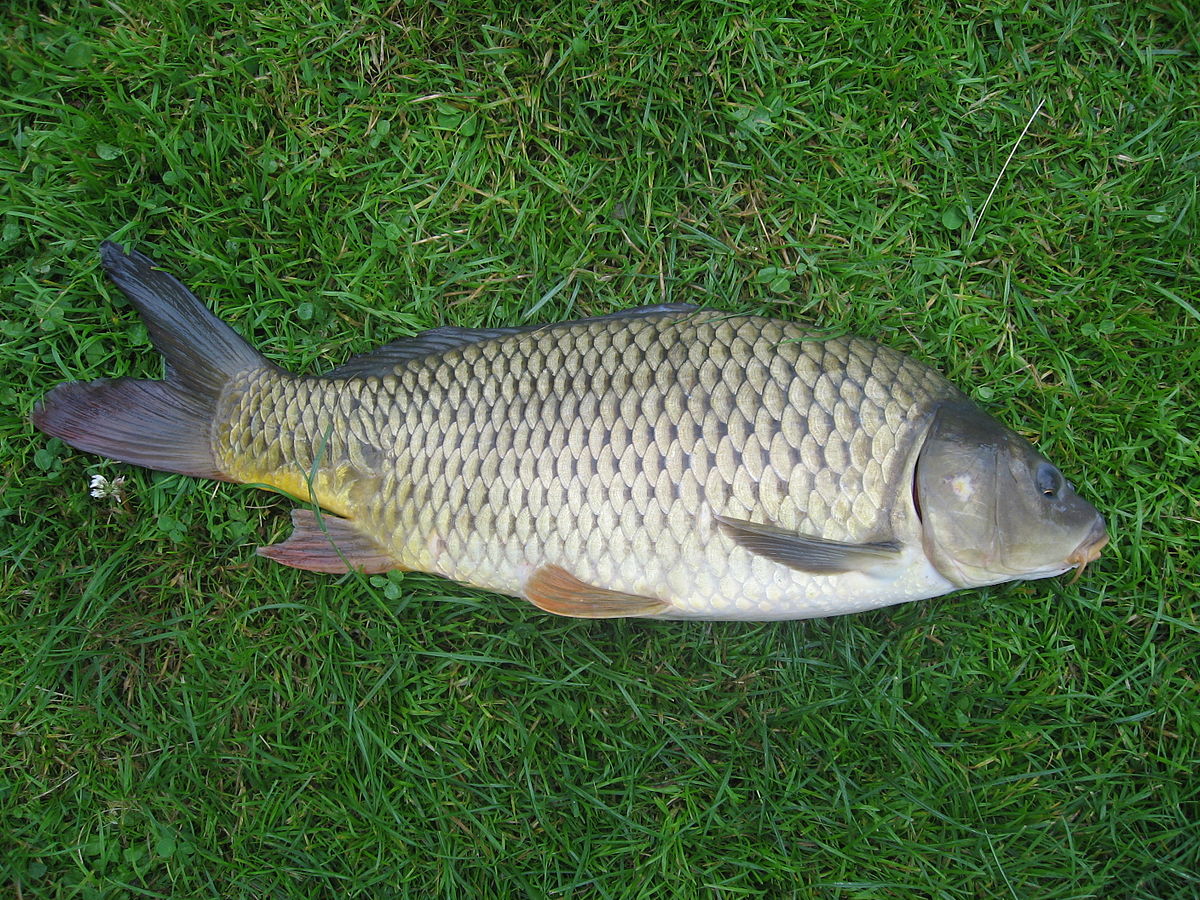
coastal
/ˈkəʊstl/ (adj) thuộc miền ven biển, duyên hảiThe tradition of worshipping whales is popular in Vietnamese coastal villages.
(Tục thờ cá voi phổ biến ở các làng ven biển Việt Nam.)

ceremony
/ˈserəməni/ (n) nghi thức, nghi lễIt’s a tradition for shops to have a lion dance performance at their opening ceremony.
(Các cửa hàng có truyền thống múa lân trong lễ khai trương.)
chase away
/tʃeɪs əˈweɪ/ (phr.v) xua đuổiThey want to chase away bad luck and pray for a lucky new year.
(Họ muốn xua đuổi xui xẻo và cầu mong một năm mới may mắn.)
contestant
/kənˈtestənt/ (n) thí sinh, người dự thiContestants jump into the river to catch a duck.
(Thí sinh nhảy xuống sông bắt vịt.)

decorative
/ˈdek.ər.ə.tɪv/ (adj) có tính trang trí, để trang tríThey hang decorative items like small bells and lanterns on it.
(Họ treo những đồ trang trí như chuông nhỏ và đèn lồng trên đó.)
family bonding
/ˈfæm.əl.i ˈbɒn.dɪŋ/ (np) sự gắn kết tình cảm gia đìnhThey are a great time for family bonding.
(Họ là thời gian tuyệt vời để gắn kết gia đình.)
family reunion
/ ˈfæmɪli riːˈjuːnjənz/ (np) cuộc sum họp gia đìnhWe have a family reunion.
(Chúng tôi có một cuộc đoàn tụ gia đình.)
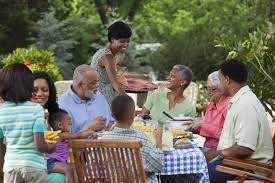
festival goer
/ˈfes.tɪ.vəl ˈɡəʊ.ər/ (np) người đi xem lễ hộiThe atmosphere becomes loud with the sound of drums and cheers of festival goers.
(Bầu không khí trở nên náo nhiệt với tiếng trống và tiếng reo hò của những người tham gia lễ hội.)
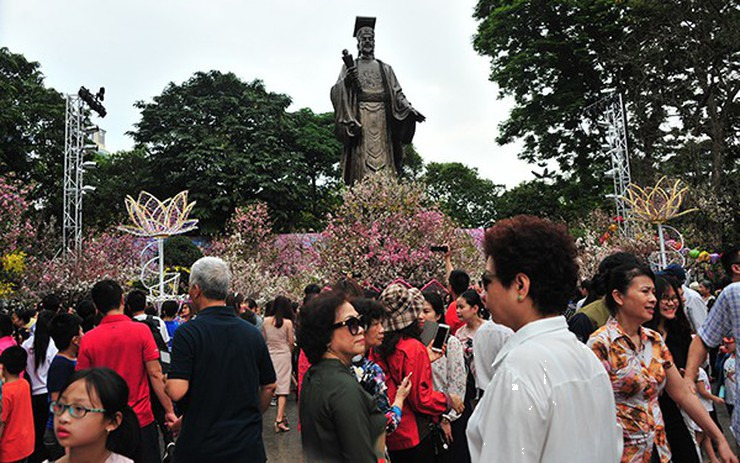
lantern
/ˈlæntən/ (n) đèn lồngPeople decorate bamboo poles with small bells and lanterns for New Years.
(Người ta trang trí cọc tre bằng chuông nhỏ và đèn lồng cho Năm mới.)

longevity
/lɒnˈdʒevəti/ (n) sự sống lâu, tuổi thọHolding a party to wish our grandparents longevity is one of the customs we keep at Tet.
(Tổ chức tiệc mừng thọ ông bà là một trong những phong tục chúng ta giữ vào dịp Tết.)

martial art
/məˈtɪə.əl ɑːt/ (np) võ thuậtShe broke with family tradition by not practising martial art.
(Cô ấy đã phá vỡ truyền thống gia đình bằng cách không tập luyện võ thuật.)

monk
/mʌŋk/ (n) nhà sưWe should show respect to the monks and the elders.
(Chúng ta nên thể hiện sự tôn trọng với các nhà sư và người lớn tuổi.)

offering
/ˈɒfərɪŋ/ (n) đồ thờ cúngVietnamese, use plants and flowers for decorations and for offerings.
(Người Việt Nam, dùng cây và hoa để trang trí và cúng dường.)
ornamental tree
/ˌɔː.nəˈmen.təl triː/ (np) cây cảnhI see flowers and ornamental trees everywhere these days.
(Tôi thấy hoa và cây cảnh ở khắp mọi nơi những ngày này.)
pray
/preɪ/ (v) cầu nguyện, lễ báiMy mum prays at the temple before breakfast on Sundays.
(Mẹ tôi cầu nguyện ở chùa trước bữa sáng vào Chủ Nhật.)

release
/rɪˈliːs/ (v) thảIt’s the amount of carbon dioxide we release into the environment.
(Đó là lượng carbon dioxide chúng ta thải ra môi trường.)

table manners
/ˈteɪbl mænəz/ (np) phép tắc ăn uốngCould you tell me a bit about Vietnamese table manners?
(Bạn có thể cho tôi biết một chút về cách cư xử trên bàn ăn của người Việt không?)
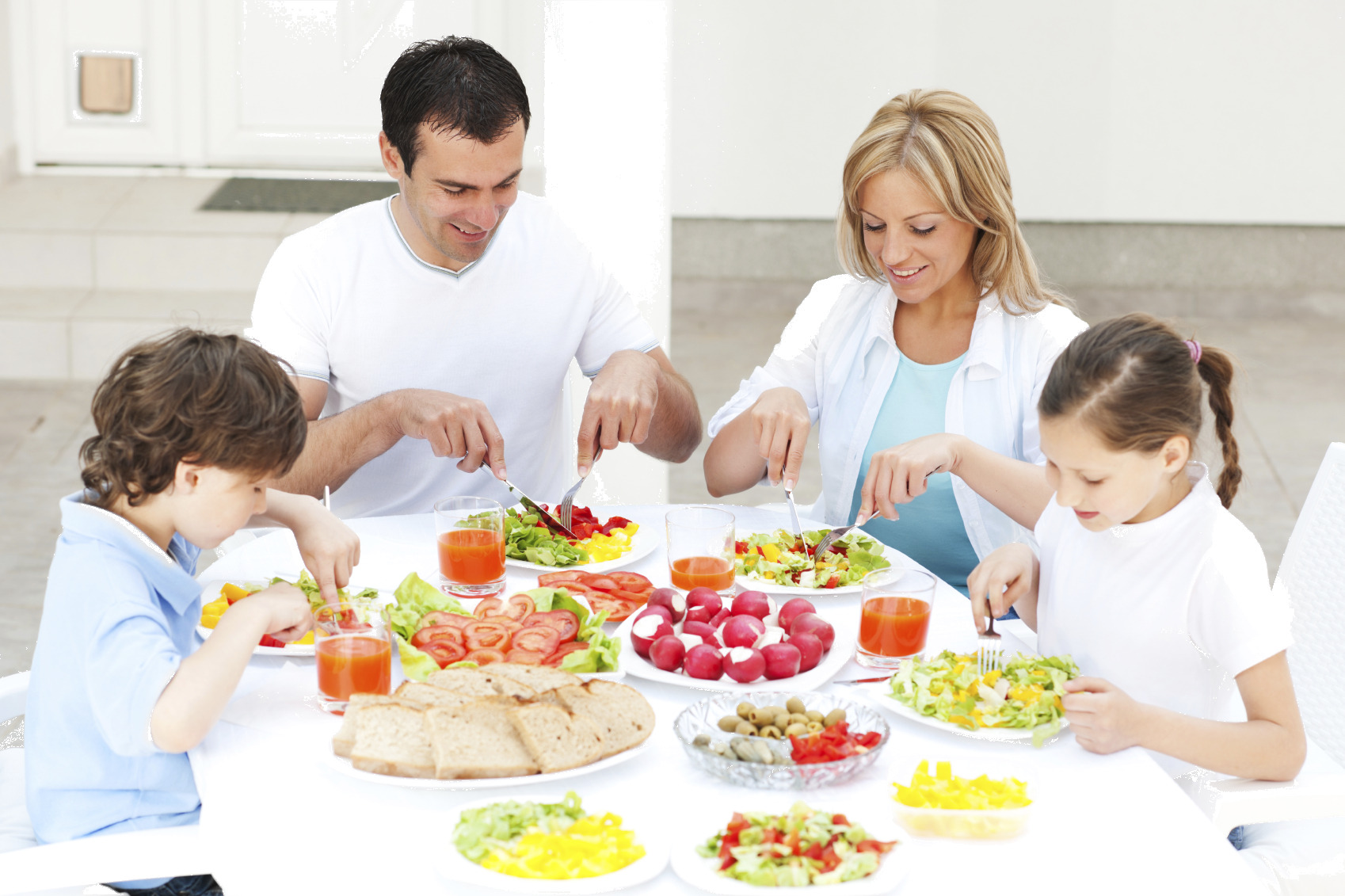
worship
/ˈwɜːʃɪp/ (v) thờ phụng, tôn kính, tôn sùngAncient Egyptians worshipped the Sun.
(Người Ai Cập cổ đại tôn thờ Mặt trời.)

young rice
/jʌŋ raɪs/ (np) cốmIn Ok Om Bok Festival , we should refuse young rice when the elders give it to you.
(Trong Lễ hội Ok Om Bok, chúng ta nên từ chối cốm khi người lớn tuổi đưa cho bạn.)
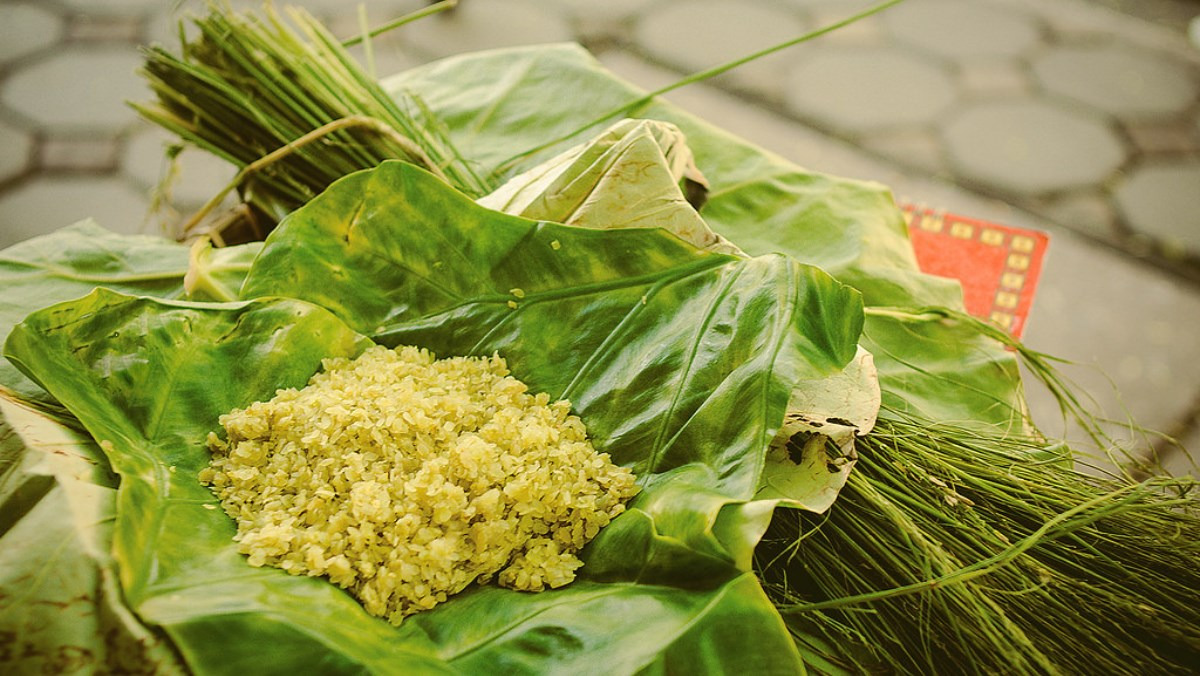
bloom
/bluːm/ (v) nởTet is coming soon, so many people visit flower villages to take pictures with the blooming flowers.
(Tết sắp đến, rất nhiều người đến thăm làng hoa để chụp ảnh với những bông hoa đang nở.)

bad luck
/bæd lʌk/ (np) xui xẻoThis may bring bad luck to the host family.
(Điều này có thể mang lại xui xẻo cho gia đình chủ nhà.)
1.2. Vocabulary for Lesson 2. A CLOSER LOOK 1
wedding ceremony
/ˈwed.ɪŋ ˈser.ɪ.mə.ni/ (np) lễ cướiThey have a wedding ceremony.
(Họ tổ chức lễ cưới.)
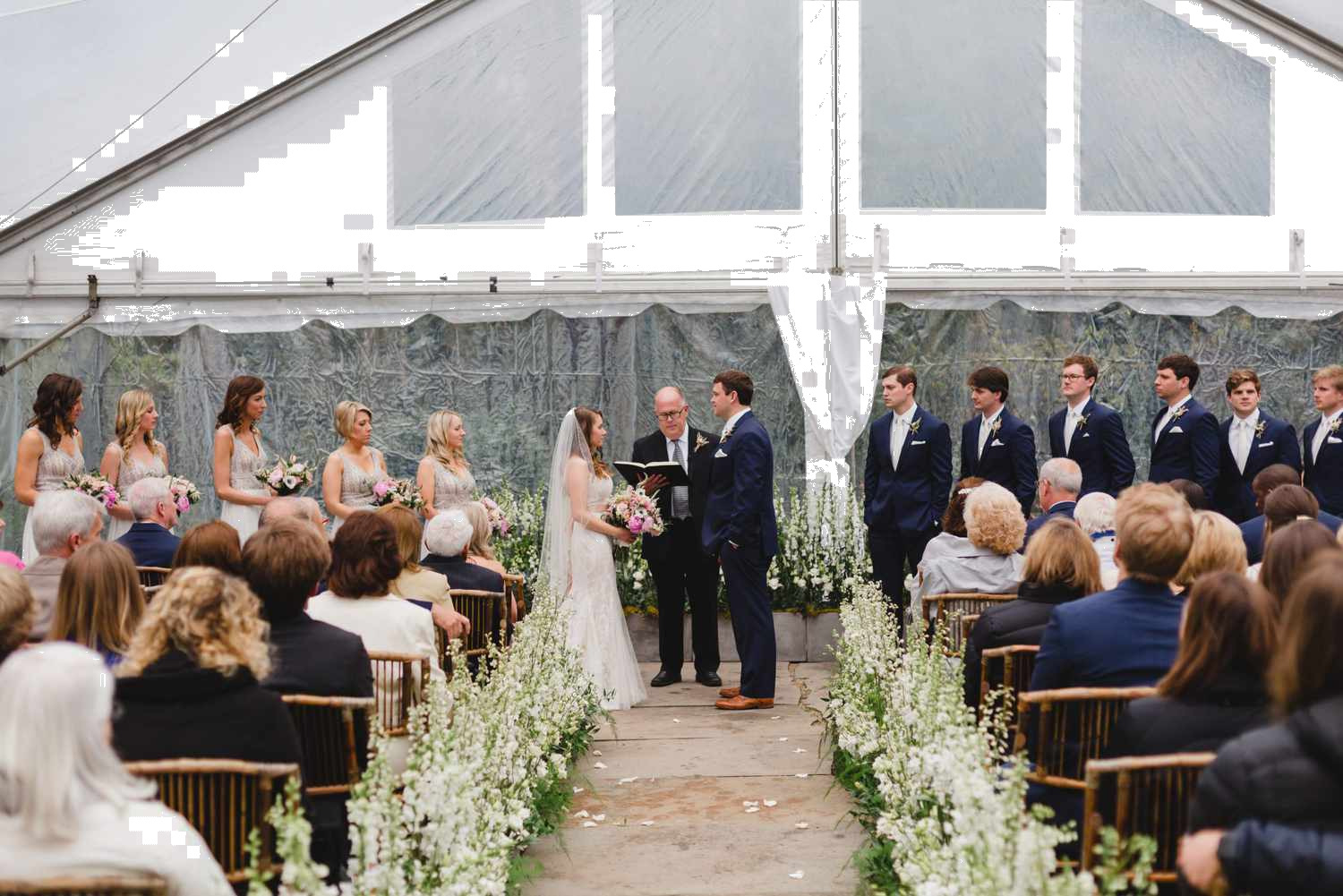
food
/fuːd/ (n) đồ ănI will bring some food to the party on Saturday
(Tôi sẽ mang một số thức ăn đến bữa tiệc vào thứ Bảy.)

lion dance
/ˈlaɪən/ /dɑːns/ (np) múa sư tửIt’s a tradition for shops to have a lion dance performance at their opening ceremony.
(Các cửa hàng có truyền thống múa lân trong lễ khai trương.)
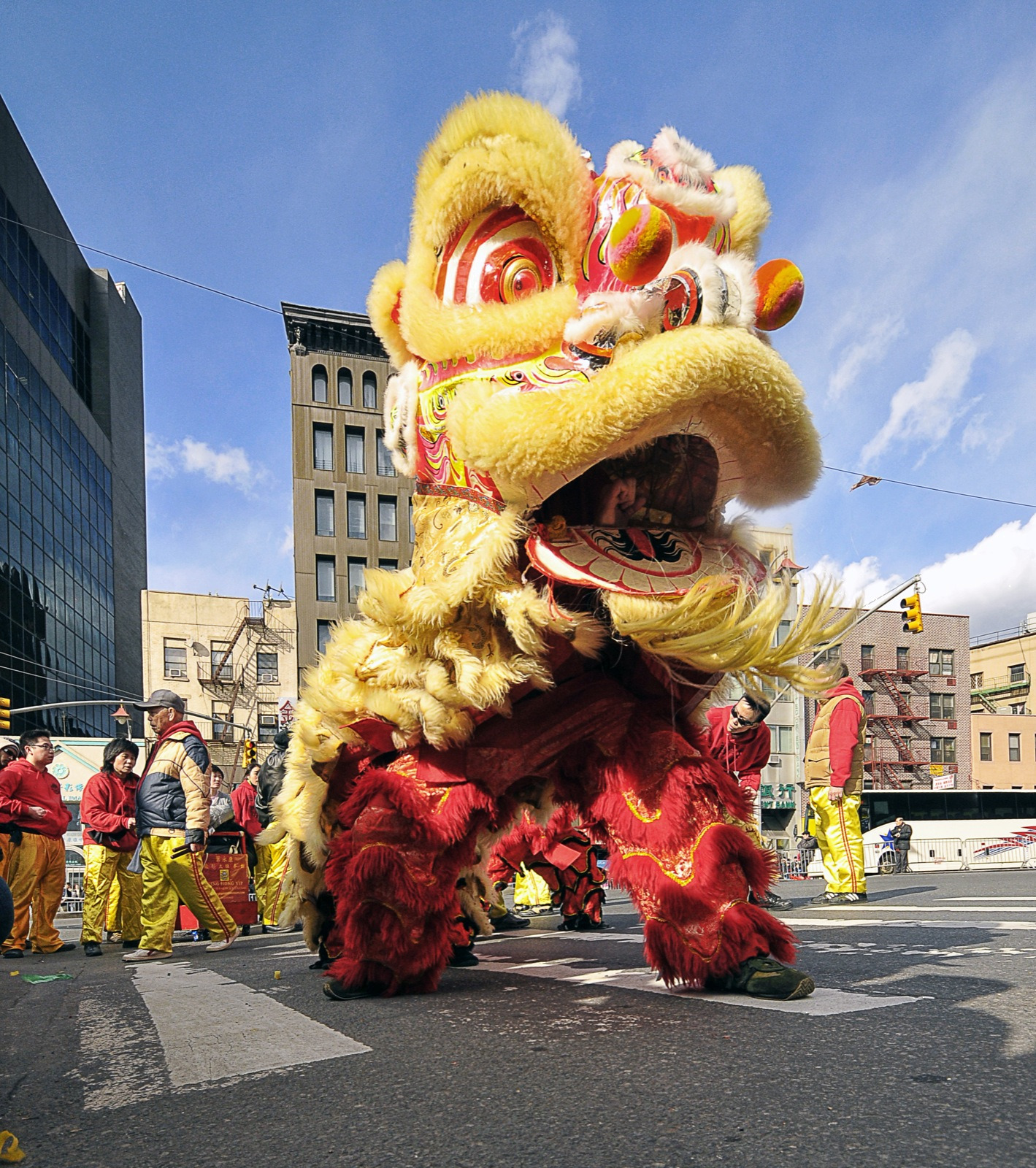
celebration
/ˌselɪˈbreɪʃn/ (n) lễ ăn mừng, lễ kỉ niệmWe have a celebration at 4 p.m.
(Chúng tôi có một lễ kỷ niệm lúc 4 giờ chiều.)

tradition
/trəˈdɪʃn/ (n) truyền thốngWe have a tradition of holding a family reunion on the first day of Tet.
(Chúng tôi có truyền thống tổ chức một cuộc đoàn tụ gia đình vào ngày đầu tiên của Tết.)

in addition
/əˈdɪʃn/ (adv) ngoài raIt’s becoming a custom for young people to celebrate New Years in addition to Tet.
(Nó đã trở thành một phong tục đối với những người trẻ tuổi để ăn mừng năm mới bên cạnh Tết.)
spring roll
/ˌsprɪŋ ˈrəʊl/ (np) chả giòMy mum made the spring rolls for the longevity party
(Mẹ tôi làm chả giò cho bữa tiệc mừng thọ)

1.3. Vocabulary for Lesson 3. A CLOSER LOOK 2
wake up
/weɪk ʌp/ (phr.v) thức dậyIt’s a tradition for children to wake up early on Christmas Day
(Đó là một truyền thống cho trẻ em thức dậy sớm vào ngày Giáng sinh)

take place
/teɪk pleɪs/ (phr.v) diễn raFamily gatherings take place by the open fire in the middle of the house.
(Họp mặt gia đình diễn ra bên đống lửa ở giữa nhà.)
next to
/nekst/ (prep) ở cạnhI thought you left it next to the TV.
(Tôi tưởng bạn để nó cạnh TV.)

hold
/həʊld/ (v) giữ, tổ chứcEach family also holds a home party.
(Mỗi gia đình cũng tổ chức một bữa tiệc tại nhà.)
value
/ˈvæljuː/ (n) giá trịMany people think that hard work is important Vietnamese value.
(Nhiều người nghĩ rằng làm việc chăm chỉ là giá trị Việt Nam quan trọng.)

laughter
/ˈlɑːftə(r)/ (n) tiếng cườiThese activities often lead to lots of laughter and fun conversations
(Những hoạt động này thường dẫn đến nhiều tiếng cười và cuộc trò chuyện vui vẻ.)

take part in
/teɪk pɑːt ɪn/ (phr.v) tham giaBesides sightseeing, visitors can also take part in sports like kite-flying.
(Bên cạnh việc tham quan, du khách cũng có thể tham gia các môn thể thao như thả diều.)

come up with
/kʌm ʌp wɪð/ (phr.v) nghĩ ra, nảy raThe first group to come up with all the correct answers wins.
(Nhóm đầu tiên đưa ra tất cả các câu trả lời đúng sẽ thắng.)

1.4. Vocabulary for Lesson 4. COMMUNICATION
bowl
/bəʊl/ (n) bátIt’s a good idea to hand bowls with both hands.
(Bạn nên bưng bát bằng cả hai tay.)

chopstick
/ˈtʃɒp.stɪk/ (n) đũaDon’t hit the bowl with your chopsticks
(Đừng dùng đũa đập vào bát.)
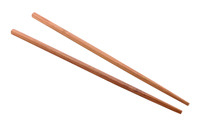
1.5. Vocabulary for Lesson 5. SKILLS 1
look forward to
/lʊk ˈfɔː.wəd tuː/ (phr.v) mong đợiEvery year, people in my village look forward to the third day of Tet.

boat race
/bəʊt reɪs/ (np) đua thuyềnThere is a special boat race.
(Có một cuộc đua thuyền đặc biệt.)

release a duck
/rɪˈliːs eɪ dʌk/ (vp) thả vịtThe referee releases a duck into the middle of the river.
(Trọng tài thả một con vịt ra giữa sông.)
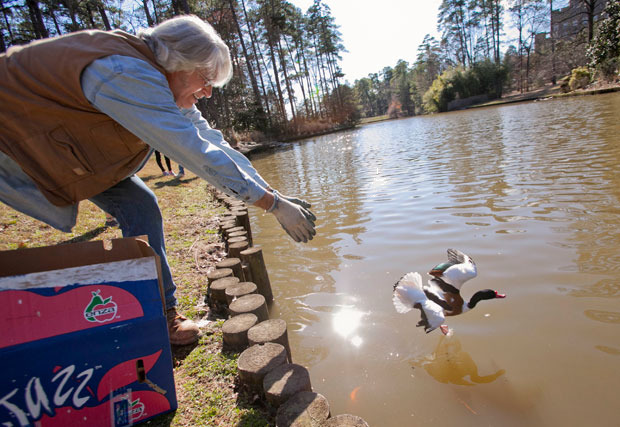
atmosphere
/ˈætməsfɪə(r)/ (n) bầu không khíThe atmosphere becomes loud with the sound of drums.
(Bầu không khí trở nên ồn ào với tiếng trống.)
steamed chicken
/stiːmd ˈtʃɪk.ɪn/ (np) thịt gà hấpWe cook traditional dishes like sticky rice and steamed chicken.
(Chúng tôi nấu các món ăn truyền thống như xôi và gà hấp.)
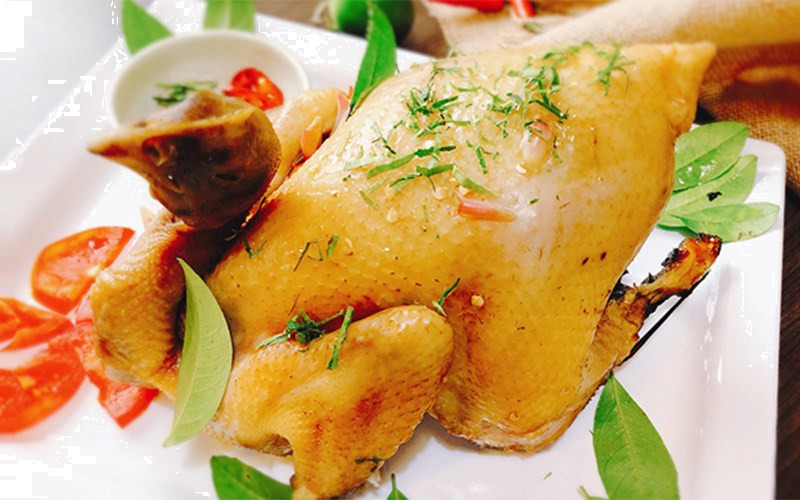
maintain
/meɪnˈteɪn/ (v) duy trìThe village festival helps us maintain our traditions.
(Lễ hội làng giúp chúng tôi duy trì truyền thống của mình.)
1.6. Vocabulary for Lesson 6. SKILLS 2
tourist
/ˈtʊərɪst/ (n) du kháchTourists should wear informal clothes when attending the worshipping ceremony.
(Du khách nên mặc trang phục giản dị khi tham dự lễ cúng.)

temple
/ˈtempl/ (n) ngôi đềnDuong Lam Village is famous for its ancient pagoda, traditional houses, and temples.
(Làng Đường Lâm nổi tiếng với ngôi chùa cổ, những ngôi nhà truyền thống và những ngôi đền.)

litter
/ˈlɪtə(r)/ (n) rácYou should try to avoid using single-use products, like plastic bags, and stop littering.
(Bạn nên cố gắng tránh sử dụng các sản phẩm sử dụng một lần, như túi nhựa và ngừng xả rác.)

1.7. Vocabulary for Lesson 7. LOOKING BACK
traditionally
/trəˈdɪʃənəli/ (adv) theo truyền thốngTraditionally, children in the US go from house to house to ask for sweets on Halloween.
(Theo truyền thống, trẻ em ở Mỹ đi từ nhà này sang nhà khác để xin kẹo vào ngày Halloween.)
practise
/ˈpræktɪs/ (n) phong tụcHaving dinner at my grandparents’ house on Saturdays is one of the customs our family practise.
(Ăn tối tại nhà ông bà tôi vào các ngày thứ Bảy là một trong những phong tục mà gia đình chúng tôi thực hiện.)
ancestor
/ˈænsestə(r)/ (n) tổ tiênThis is the ancestor of cattle.
(Đây là tổ tiên của gia súc.)
stay out
/steɪ aʊt/ (phr.v) ở ngoàiIt’s becoming a custom for us to stay out very late on New Year’s Eve.
(Việc chúng tôi đi chơi rất muộn vào đêm giao thừa đã trở thành một phong tục.)
pagoda
/pəˈɡəʊdə/ (n) chùaIt is famous for its ancient pagoda.
(Nó nổi tiếng với ngôi chùa cổ kính.)

raise somebody awareness
/reɪz ˈsʌm.bə.di əˈweə.nəs/ (vp) nâng cao nhận thức của aiHere are two easy ways to raise children’s awareness of customs and traditions.
(Đây là hai cách dễ dàng để nâng cao nhận thức của trẻ em về phong tục và truyền thống.)
preserve
/prɪˈzɜːv/ (v) bảo tồnBy doing this, children can learn and preserve their family recipes.
(Bằng cách này, trẻ em có thể học và bảo tồn các công thức nấu ăn gia đình của chúng.)
recipe
/ˈresəpi/ (n) công thứcWho looks for recipes when Trang and her brother cook?
(Ai tìm kiếm công thức nấu ăn khi Trang và anh trai cô ấy nấu ăn?)
2. Grammar for Unit 5. Our Customs and Traditions
- Mạo từ trong tiếng Anh bao gồm a/an, the và không dùng mạo từ. - Thỉnh thoảng, chúng ta sử dụng danh từ mà không có a/an hoặc the. Chúng ta gọi là không dùng mạo từ. - Chúng ta không sử dụng mạo từ + với danh từ không đếm được hoặc danh từ trừu tượng + khi đưa ra nhận định chung chung + khi miêu tả các phương tiện giao thông nói chung
ZERO ARTICLE
(Không dùng mạo từ)
- Mạo từ trong tiếng Anh bao gồm a/an, the và không dùng mạo từ.
- Thỉnh thoảng, chúng ta sử dụng danh từ mà không có a/an hoặc the. Chúng ta gọi là không dùng mạo từ.
- Chúng ta không sử dụng mạo từ
+ với danh từ không đếm được hoặc danh từ trừu tượng
Ví dụ: Sugar is not good for your teeth.
(Đường không tốt cho rang của bạn.)
+ khi đưa ra nhận định chung chung
Ví dụ: Students should work hard.
(Học sinh nên học hành chăm chỉ.)
+ khi miêu tả các phương tiện giao thông nói chung
Ví dụ: We went home by boat.
(Chúng tôi về nhà bằng thuyền.)
3. Video Lecture for Unit 5. Our Customs and Traditions
Video
Lecture for Unit 5. Our Customs and Traditions.
3.1. Video Lecture for Lesson 1. GETTING STARTED
Collected from VietJack Tiểu học & THCS
3.2. Video Lecture for Lesson 2. A CLOSER LOOK 1
Collected from VietJack Tiểu học & THCS
3.3. Video Lecture for Lesson 3. A CLOSER LOOK 2
Collected from VietJack Tiểu học & THCS
3.4. Video Lecture for Lesson 4. COMMUNICATION
Collected from VietJack Tiểu học & THCS
3.5. Video Lecture for Lesson 5. SKILLS 1
Collected from VietJack Tiểu học & THCS
3.6. Video Lecture for Lesson 6. SKILLS 2
Collected from VietJack Tiểu học & THCS
3.7. Video Lecture for Lesson 7. LOOKING BACK & PROJECT
Collected from VietJack Tiểu học & THCS
4. Hướng dẫn phát âm Unit 5 (Global Success 8)
Bấm vào các link Mục lục (Table of Contents) để xem Video Hướng dẫn và Thực hành Phát âm.
Phần Thực hành phát âm nên học trên máy tính.
4.1. Video Hướng dẫn phát âm Unit 5 (Global Success 8)
Collected from Tiếng Anh Global Success (Sách Mềm)
4.2. Thực hành phát âm – Pronunciation Practice. Unit 5
Sounds /n/ and /ŋ/
Click the buttons to listen, say aloud, and record. Compare your voice with the sample pronunciation. Practice each sentence at least 3 times.